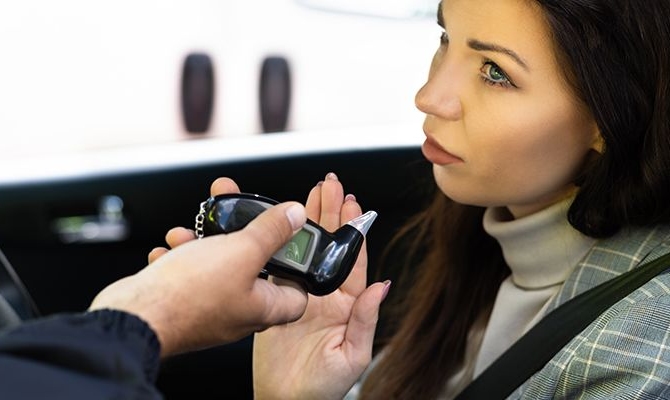81Views

Most people are taken aback when their first DUI charge turns out to be much more serious than expected. Depending on your state, penalties for DUI include fines, license suspension and jail time.
An alcohol-related conviction may have long-term repercussions, including adversely impacting your auto insurance rates. Here are five indicators that your first DUI might be more serious than you initially think.
1. You were driving with a child in the car
Driving while transporting children in your car may increase the severity of a DUI charge, depending on its details and your case’s circumstances. But being caught with this offense alone could make matters much worse – certainly an aggravating factor should never be forgotten!
If you are arrested for DUI while transporting children in your vehicle, prosecutors are likely to take this into consideration during your trial. They may examine your actions to see if you were distracted or driving recklessly with them in the car, as well as take into account whether you have had prior incidents and the blood alcohol content at the time of arrest.
DUIs are considered serious criminal offenses that can carry jail time, heavy fines and community service requirements. If convicted of DUI, your driver’s license will likely be suspended and it may become necessary to install an Ignition Interlock Device into your car; additionally, insurance rates will likely increase significantly.
If you have been charged with DUI, consulting with an experienced DUI lawyer is imperative. They will explain your rights and options while conducting a comprehensive case evaluation to aid in building your defense strategy. Unbundled Legal Help offers free consultation with local DUI lawyers.
2. You were driving with a blood alcohol content over the legal limit
Every state has different laws on what constitutes driving under the influence of alcohol, with most having at least 0.08% blood alcohol concentration (BAC), measured via breathalyzer or urine analysis.
Once a person’s blood alcohol concentration (BAC) exceeds this threshold, their impairment becomes severe and can have serious repercussions for themselves and others. They can experience slurred speech, loss of balance and coordination, mood changes, vomiting and blackouts at this stage; and further accidents which could cause injury or death may also ensue.
Even if a driver’s blood alcohol concentration (BAC) falls within the legal limits, they could still be arrested for DUI if other factors come into play – for instance if there are children present, probation for prior DUI convictions or any other aggravating circumstances present.
When caught driving over the legal limit, drivers face fines, jail time and license suspension. Furthermore, DUI convictions tend to increase auto insurance rates; its exact impact may depend on factors like your insurer and rating factors; but generally speaking it’s safe to assume your premium will increase due to appearing on their record and altering risk profiles.
3. You were driving with a BAC over the legal limit
A blood alcohol concentration (BAC) reading can serve as legal proof that someone is driving under the influence. Most states have set minimum BAC thresholds at which drivers may be charged with DUI; however, police officers can also use other forms of evidence such as observational observations such as bloodshot eyes and slurred speech or field sobriety tests such as walking on a straight line or following an object with your eyes to demonstrate intoxication during driving. When conducting these tests, police must adhere strictly to guidelines so as to guarantee admissibility of results and any mistakes can undermine admissibility of results.
New York law stipulates a Blood Alcohol Content (BAC) level of 0.08 percent or above as evidence of intoxication; however, drivers aged 21 or younger who drove are subject to New York’s Zero Tolerance Law which allows charges even with lower BAC levels being laid against them for DUI offenses. Commercial drivers face an even stricter standard; their BAC must reach 0.04% or greater before driving commercial vehicles on public roadways.
States typically punish DUI offenders with heavy fines, license suspension and even jail time; the severity of these punishments varies based on factors like your BAC level, whether children were present and whether property damage or injury resulted from the DUI offense. Furthermore, this conviction could limit employment prospects and make college entrance more challenging.
4. You were driving with a BAC over the legal limit
No matter the quantity, a blood alcohol concentration (BAC) that exceeds the legal limit can lead to DUI charges in any state. Penalties depend on various factors including your age and severity of accident or injury involved as well as local laws in your jurisdiction.
Most states set a legal blood alcohol concentration (BAC) limit of 0.08%; drivers found driving with a BAC higher than this may face fines, license suspension or even jail time if caught driving under the influence. Unfortunately, however, most people feel the negative impacts of drinking and driving even at levels below this threshold.
Underage drivers have even lower BAC limits; many states have Zero Tolerance laws which prevent them from driving with any level of blood alcohol concentration in their system.
Getting caught driving under the influence is more serious than many realize; not only will you incur a financial fine and lose your license, but your insurance rates may skyrocket and your career or education could suffer significantly. Furthermore, some states require DUI offenders to install ignition interlock devices into their personal vehicles in order to avoid further DUI charges and damage – this device requires you to pass a breathalyzer test before your car will start; an effective way of avoiding future DUI charges and further harm.



